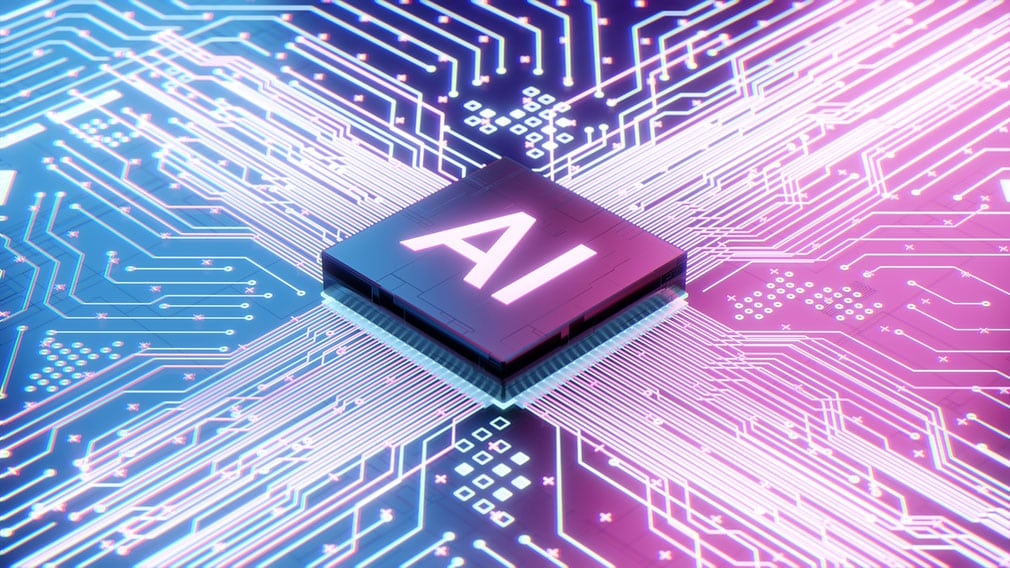
Artificial Intelligence (AI) has swiftly transitioned from being a futuristic concept to a tangible reality that’s reshaping our world. From autonomous vehicles to personalised online shopping experiences, AI is at the forefront of technological innovation. But what does the future hold for this transformative technology?
Let’s embark on a journey into the captivating realm of AI and explore the predictions and trends that will define the next decade.
AI has made significant strides since its inception. Today, it’s a pivotal force behind many of the technologies we use daily. From voice-activated assistants like Siri and Alexa to recommendation algorithms on platforms like Netflix or Amazon, AI is omnipresent. However, this is just the tip of the iceberg. The future of AI promises even more thrilling developments, with advancements in machine learning, deep learning, and neural networks leading the way for more sophisticated and intelligent systems.
AI is set to become even more ingrained in our daily lives. From intelligent homes that anticipate our needs to AI-powered personal assistants that help us manage our schedules, the future of AI is all about enhancing our lives and boosting efficiency.
AI-powered smart homes will use predictive algorithms to learn our habits and preferences, adjusting the lighting, temperature, and even music based on our routines and moods. AI personal assistants will evolve to become more proactive, offering reminders for important tasks, suggesting optimal routes for our commutes, and even making reservations or purchases on our behalf.
AI is not just about enhancing our personal lives; it’s also set to revolutionise the business landscape. Companies will increasingly harness AI to drive innovation, enhance customer service, and secure a competitive edge. From automating mundane tasks to providing insights into customer behaviour, AI will be a game-changer for businesses of all sizes.
AI will automate routine tasks, freeing up employees to focus on more strategic and creative tasks. This will not only boost productivity but also enhance job satisfaction. AI will also provide businesses with valuable insights into customer behaviour, enabling them to offer more personalised experiences and make more informed business decisions.
While there are concerns that AI could replace certain jobs, it’s also predicted to create new ones. As AI technology evolves, there will be a growing demand for professionals who can develop, maintain, and improve these systems. This means that while some roles may become obsolete, others will emerge, requiring new skills and expertise.
New job roles could include AI ethicists, who will be responsible for ensuring that AI systems are developed and used ethically. AI trainers, who will teach AI systems how to perform tasks, and AI maintenance workers, who will ensure that AI systems are running smoothly, are other potential job roles.
One of the sectors where AI is set to make a significant impact is healthcare. From diagnosing diseases to personalising treatment plans, AI has the potential to revolutionise healthcare and improve patient outcomes.
AI could be used to analyse medical images, detect anomalies, and diagnose diseases more accurately and quickly than human doctors. It could also be used to personalise treatment plans based on a patient’s unique genetic makeup, lifestyle, and other factors.
As cyber threats become more sophisticated, AI will play a crucial role in cybersecurity. By analysing patterns and detecting anomalies, AI can help identify potential threats and respond to them more quickly than human analysts.
AI could be used to monitor network traffic, detect unusual patterns, and alert security teams to potential threats. It could also be used to predict future threats based on historical data and current trends.
AI is also set to transform education. From personalised learning experiences to AI-powered tutoring, the use of AI in education will help students learn more effectively and at their own pace.
AI could be used to personalise learning materials based on a student’s unique learning style and pace. It could also be used to provide real-time feedback, helping students understand their strengths and weaknesses and improve their learning outcomes.
AI products are increasingly becoming popular, with several making it to the list of most searched AI products. These include AI software like viso.ai, TechRadar’s best AI tools, and Forbes’ list of mind-blowing AI tools. These tools and platforms are helping businesses and individuals adopt and leverage AI technology.
The future of AI is thrilling and full of potential. As we move into the next decade, we can expect to see AI becoming even more integrated into our daily lives and driving innovation across industries.
The future of AI is not without its challenges, but the potential benefits far outweigh the risks. As we continue to explore and harness the power of AI, the possibilities are truly limitless.
Artificial Intelligence is a branch of computer science that aims to create systems capable of performing tasks that would normally require human intelligence. These tasks include learning, reasoning, problem-solving, perception, and language understanding.
The term “Artificial Intelligence” was coined by John McCarthy in 1956 at the Dartmouth Conference where the discipline of AI was born.
The term “Artificial Intelligence” was coined by John McCarthy in 1956 at the Dartmouth Conference where the discipline of AI was born.
Yes, artificial intelligence does exist and is being used in many areas of our lives today. From voice assistants like Siri and Alexa to recommendation algorithms on platforms like Netflix or Amazon, AI is everywhere.
Some common AI terms include machine learning, deep learning, neural networks, natural language processing, robotics, and cognitive computing.
Like any technology, AI can be dangerous if misused or mishandled. Concerns include job displacement due to automation, privacy issues related to data collection, and the potential for AI-powered systems to be used in harmful ways.
AI is set to revolutionise many sectors, from healthcare and education to cybersecurity and business. It’s expected to make our lives more efficient, drive innovation, and create new job opportunities.

hello@fyreflyinc.com
Copyright 2020, Fyre Fly Inc. All Rights Reserved.
Built by Genesis Marketing Consultants